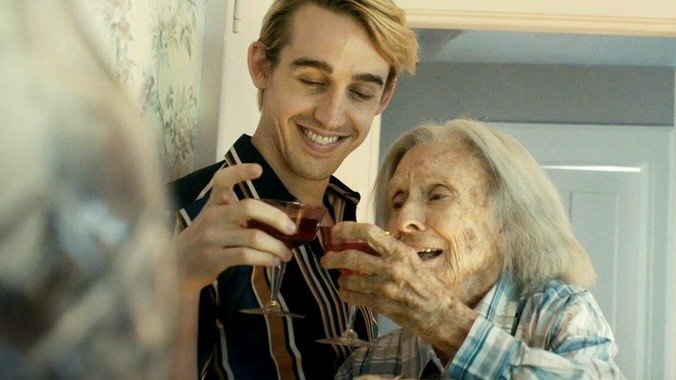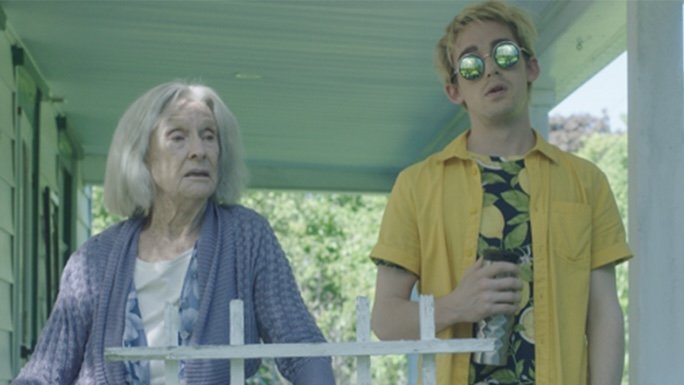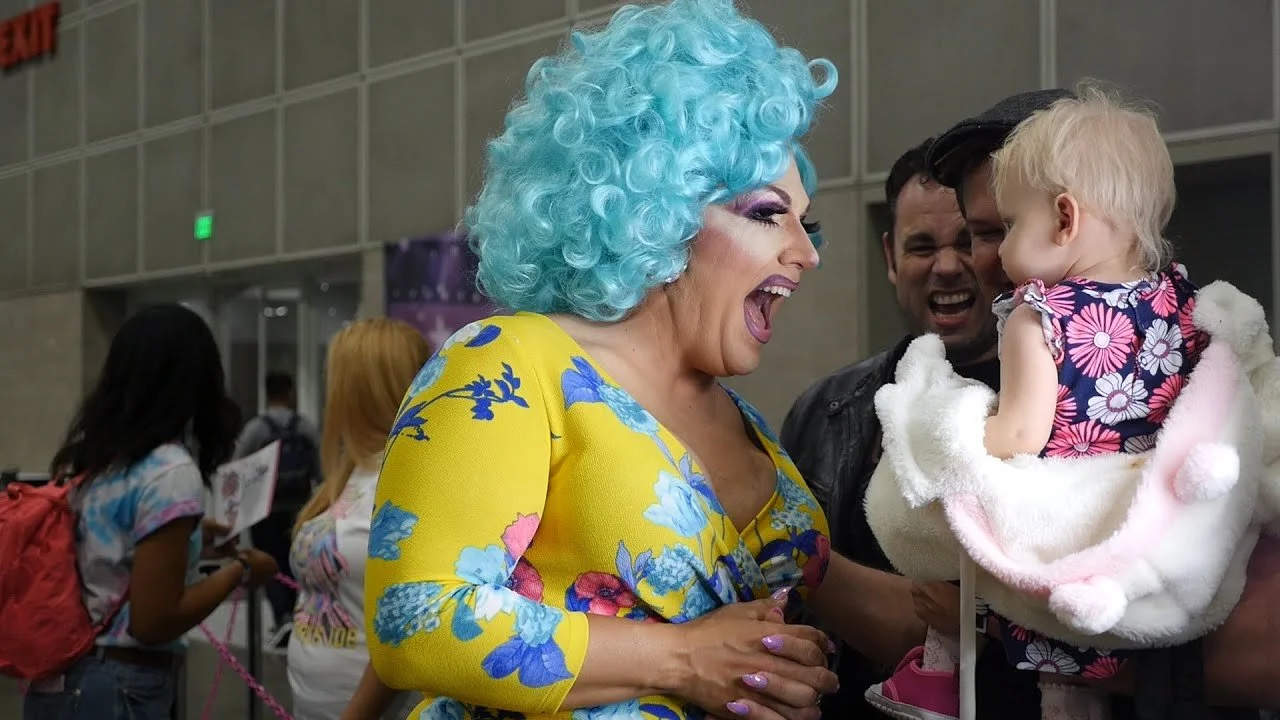Film Review — "Jump, Darling"
This review first appeared on InSessionFilm.com.
Cloris Leachman was a legend—a powerhouse performer with a range and résumé that most actors can only dream of. When she died last year at the age of 94, Hollywood was left with a wound that will never fully heal. From her Oscar-winning turn as the devastating Ruth Popper in Peter Bogdanovich’s The Last Picture Show to her equal-parts sinister and absurd Nurse Diesel in Mel Brooks’ High Anxiety to her chuckle-inducing voice work in Beavis and Butthead Do America (in which she plays the accidentally provocative Old Woman on Plane and Bus who loves “doing slots” in Vegas), Leachman was an unmatchable presence in American cinema. And then there’s her record-setting history with the Emmys, thanks to her prolific and varied television career! So, if anything, Phil Connell’s Jump, Darling is worth watching simply to put a punctuation mark on the life of an icon.
In Connell’s debut feature, Leachman plays Margaret, the caustic grandmother of the protagonist. The film opens on Margaret, and we recognize immediately that she is a woman in decline. She survives a kitchen accident that very well could have killed her had she not been so lucky, yet she is determined to live on her own and absolutely refuses to be placed in a home. Thankfully, her struggling-actor-turned-struggling-drag-queen grandson (Thomas Duplessie) is having a quarter-life crisis and flees Toronto to return to his small Canadian hometown in rural Prince Edward County, Ontario. Russell is at a point in his early adulthood where he doesn’t really know what he wants anymore. The acting thing hasn’t been working out, and he has not thus far blossomed into a great drag queen either. Down on himself and lacking direction, Russell’s instincts take him home.
Duplessie is fine as Russell. Playing an aimless character is not easy, especially when the direction of the film itself seems to adopt the mindset of that character. Jump, Darling wants to be “about” a lot of serious stuff: the hereditary nature of mental illness, suicidal behavior, alcoholism, family trauma, etc., but it only dabbles in each without ever fully committing to a single one; similar to Russell’s own absence of commitment or ambition. So, conceptually… sure. But it doesn’t always make for very interesting storytelling, or for an engaging performance. Naturally, Duplessie is most compelling when he’s Fishy Falters, Russell’s drag alter ego. (First of all, it’s kind of bold of Russell to choose the name Fishy when she’s not fishy. The Falters surname, however, makes sense, considering the way he’s finding his footing.) It’s when in character as Fishy that Duplessie/Russell really comes to life and the movie wakes up.
The film’s most dynamic sequence is of Fishy, at a low point, expressing herself in the best way she knows how. Finding herself all alone in the technically-not-a-gay-bar-but-ostensibly-a-gay-bar where she’s been performing and DJ-ing since arriving back in town, Fishy allows herself to mentally go to another place and the film follows: the setting’s periphery goes dark, the lighting becomes très dramatique, and the camera moves with Fishy as she’s owning every inch of the space to the tune of Robyn’s “Indestructible.” Musical theatre characters sing and dance when they’re so overcome with emotion that they have no other way of articulating what they’re feeling, and this sequence is Fishy’s fierce version of that. Her pussy is on fire as she is living her full video vixen fantasy, due in large part to cinematographer Viktor Cahoj’s lighting prowess.
Fishy reveals Russell’s strength. She’s not so much his armor as she is his conduit. It’s via Fishy that he channels his insecurities. Without the veneer she provides, Russell moves through life somewhat halfheartedly. So, of course, Duplessie’s best scenes are the ones opposite Cloris Leachman. The most dedicated thespians not only bring it to you every ball, but also elevate their scene partner. And that was one of Leachman’s greatest gifts. Thomas Duplessie is certainly a good actor, but I have a feeling he grew tenfold simply by having acted with Leachman. As a bon voyage role, Margaret is suitable. Like the actress playing her, Margaret is intuitive and tenacious, with an acidic wit. She’s also a woman carrying a lot of baggage, the weight of which has undoubtedly been contributing to her worsening state. It’s a role that requires vulnerability, and Leachman demonstrates a willingness to do what needs to be done to give Margaret the dignity she so deserves. There will never be another Cloris.




